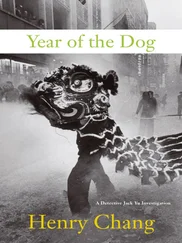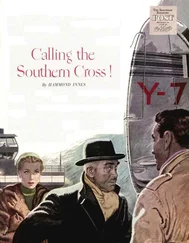Mebbe it time t’leave Panther, she told Bossjohn. Go elsewhere.
Roan snickered.
You gon’ put on a dress and go they bugheway churches? Spin yarn wit all they bugheway women?
We can go to Snakebite Creek, she said. We can start again.
Bossjohn rose suddenly. His face was red and he stood hunched and huffing.
Pierre L’Etang come down to Panther by he’self. One man he clear here timber. One man he drag chain and when go him North to Beaver, we lay they old bones down in there palmetto. Mon pere all laid under in this swamp. This we mud. This we home. You no fo’getting that.
Frankie became quiet.
Bossjohn stewed moodily in his thoughts for a moment until finally he spoke.
You’s gon’ take Rowbear back ’a Flats and wait fo’ us.
You gon’ leave her with that animal? Roan muttered.
Bossjohn looked into his brother’s eyes. Oui, he said.
Frankie cooked them a breakfast of fried cornmeal, and when they had finished, she watched them go, packs loaded, leaving Frankie her rifle, some shells, and enough food and water to last the week. The lantana closed up around them. They’d be gone a month. Longer if the game was scarce. Frankie kicked dirt over the fire and scrubbed the pan out with dust. She knew they were bound for a lean winter. She did not need Bossjohn telling her about L’Etangs. Her mother was Mathilde Haskins, and ’fore that, Mathilde L’Etang. Sweet Till, they called her. She was born of Horace and Therese L’Etang and was sister to Pierre, Maurice, Otum, and Tomas. She had flaming red hair and crooked teeth and arms like a bear — thick and strong. Back then, L’Etangs were still in the north woods and had never set foot in no swamp. Sweet Till was six years old when she had hired herself out to the lumber camps, carting hatchets and shovels and handsaws to the men and taking the dull heads to the whet wheel for sharpening. She’d hone them herself, her nose bent low as she rode the sharp against the stone, watching it spark. When she was old enough, she got a job with the camps and swung those selfsame hatchets. She drank and swore, and she’d wrestle the arm off any man fool enough to try her.
When she was seventeen, Sweet Till had broken the arm off a Choctaw shipping clerk from across the border. He was her opposite in every way. Sweet Till was a friendly heavyset girl, loud and exuberant. The clerk, Mr. Haskins, was small, thin boned, quiet. Never said more than three words to anybody. Those who’d met him said he had a dark temper to match his skin, but he had a pretty face, Sweet Till would tell Frankie later, near like a china doll.
Frankie was never clear on why the small brittle 108-pound Mr. Haskins would lock arms with Sweet Till L’Etang. Nor could she figure what was in her father’s mind when he heard the pop deep in his meat, when his whole arm shuddered apart and folded back on itself. What she knew was that Sweet Till set his arm in plaster and took him home. She nursed him up on soup, sitting on the edge of the bed and spooning it into his mouth, though there weren’t a thing wrong with his other arm. Mr. Haskins spent a month laid up with Sweet Till, and when that month was gone, he was gone with it. And when Sweet Till began to show, she quit timbering and her parents sent her down-country where her oldest brother, Pierre, had gone years before.
She rode the train alone across the border, a plum-sized thing inside of her. There were no windows in her cabin, so she’d steal out to the dining car where the views were huge and wide, and she’d watch the country roll around her, the mountains white as bone and the crisp evergreens in the distance. She felt herself being thrust like a bullet into this land. The sun was warm and bright, and she stood there, her palms against the cool glass, until someone from the waitstaff asked her would she please return to her car.
Her brother met her at the station and he was different from what she remembered. She was small when he left home and she had in her mind the image of a boy, thin, brown-eyed and fair-haired with large front teeth and ears that stuck out from the side of his head, like an ass. But now he was older, balding, his skin bronzed. He had a small paunch, and his back had taken on a deep stooping hunch. Pierre’s front teeth were still large but there were less of them now, brown with chaw.
He came with his two boys, the older one almost a man, save for the fine down on his upper lip; the younger one hardly above his father’s knee. The woman Pierre had taken for his wife died the past winter, and all that was left of her haunted those boys’ faces. The dark hair. The dagger chin. Eyes so blue they made her shiver. Pierre pushed the boys forward to greet their aunt, and they each gave her a firm brave handshake. The little one, she would tell Frankie, would not stop crying.
She kept house for them in a small cabin on the outskirts of Panther Swamp. She dressed and cleaned their kills, fed them, swept out the cabin, and soon she found herself missing her days in the lumber camp. For Pierre, the world had opened inside the swamp. He killed beaver and nutria and wild boar, shot bears and panthers and swampdogs. He became renowned as a trapper in all the trading forts along the gulf. But for Till, the world had narrowed. Till who could singlehandedly fall a bristlecone in ten strokes and Till who drank fire and tore the arms off of men became Till the sweeper of floors, the darner of stockings. She hated this life, the swamp. She never told Frankie that outright, but Frankie could see it in her those months before she went North to Beaver, when the hate had marbled hard in her guts.
When her belly got big, Till got her hands on a stick of hickory and an old ax head and she made herself a hatchet. When the boys were out trapping, she’d go out to the back copse and get working. She’d hack away at the oaks, bringing it up across her shoulder, swinging down, the weight of the ax head swimming through the air. Piece by piece, she tore away at the oak, tore away at the swamp. And when a tree fell, she’d split its body into cords, bundle them up with twine, and carry them alone back behind the house.
She’d stocked that timber aiming to sell it and save the earnings for a little place in town for her and that bump inside her. She’d worked like that for six weeks, tirelessly, clearing away the land. Then one day, without telling her, Pierre traded the timber himself for corn whiskey, a new pair of fox jaws, and a hardly used Enfield rifle. They were on his land, he told her. They were his trees.
When Frankie was born, Sweet Till’s hair was already brittle as straw. The color was gone from her cheeks, and there were deep blue veins in her hands and ankles. Her breasts had swole uncomfortably.
Often she’d look at her new baby and could not believe it had come from her. Its skin was white and milky, like hers, but already, it looked like her Choctaw father — serious, easily offended, beautiful with brown-black hair, narrow pinched lips. It was either by chance or by fortune, but two days after Frankie was born, Pierre was killed. Him and his older boy had gone panther hunting in the northern ridge when suddenly the winds changed. The cat had sniffed out the two hunters and circled behind them. The boy John fired on the animal, killing it, but not before it had taken his father.
Sweet Till buried her brother out in the mudflats, and she would’ve lit out from the swamp right then and there, but Pierre’s boys, John and Roan, refused to leave. The older one had started to calling himself Bossjohn, and he took Pierre’s place as the head of the L’Etangs. He took his brother under his charge and he learned him to hunt and trap. The new baby he also put under his care. When little Frankie would cry, it was only Bossjohn who could quiet her, holding the large dangling thing in his arms, bouncing her softly, and Sweet Till understood. She’d been beaten.
Читать дальше












